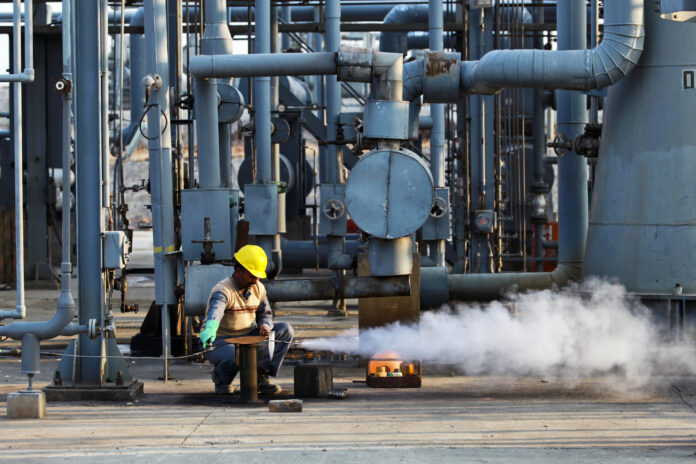ISLAMABAD: A private sector company, which secured gas sales and marketing licence from Oil and Gas Regulatory Authority (OGRA), is all set to start importing Liquefied Natural Gas (LNG) in October and November, supplementing the government efforts to meet the consumers’ increased demand.
“We are ready and just waiting for the implementation on legal framework prepared by the government to facilitate private sector in the LNG import, ” Universal Gas Distribution Company (UGDC) Chief Executive Officer (CEO) Ghiyas Abdullah Paracha told APP.
He said there were some bureaucratic snags for private import and utilisation of the LNG, which would hopefully be removed at the earliest as the government believed in opening up the energy sector for private sector players.
“The UGDCL has planned to import its first LNG shipment in October and November subject to implementation on the legal framework,” Paracha, who is also All Pakistan Compressed Natural Gas Association’s (APCNGA) central chairman, said.
Recently, he said, the government had also invited the private sector to use the unutilised and access private capacity of the LNG terminals to ensure improved supply of the gas to consumers in the upcoming winter season.
With the private sector import, Paracha expressed confidence that the commodity shortage would be overcome to great extent; besides CNG stations and other industries would continue to operate as per routine.
He said it would also help the government saving around Rs97 billion on account of the LNG terminals ‘fixed charges,’ if the private import continued throughout a year.
In addition, he said, the government would generate around Rs104 bn revenue in a year after the flow of private sector LNG in transmission network of Sui Southern Gas Company (SSGC) and Sui Northern Gas Pipelines Limited (SNGPL).
“The country’s oil import bill would also come down by Rs800 bn,” he said, adding that imported LNG was almost 13 per cent cheaper than the other imported fuel.
“We will import our own LNG, inject in the pipelines of the gas companies, supply to CNG stations and other industries and collect bills from our consumers by paying rent to SSGC and SNGP against the utilisation of their transmission network.”
The UGDC CEO said it would be a win-win situation for all stakeholders as the private sector would get business and consumers smooth supply of gas throughout the year without any financial involvement of the government.
Paracha said the UGDC had signed agreements with 670 CNG stations and some other industrial units for supply of the gas and “We are just looking for implementation on the Legal Framework to start the LNG import.”
Meanwhile, the APCNGA welcomed the Economic Coordination Committee’s (ECC) decision with regard to allowing the OGRA to issue licences for setting up new CNG stations after a break of 12 years.
The ECC has permitted OGRA to issue new CNG Licenses to Regasified Liquefied Natural Gas (RLNG)-based filling stations.
“We are thankful to the government. It is an extremely positive step, which reflected the government’s prudent policy and future vision for the revival of the CNG sector,” Paracha said, adding that the decision would help bring down the country’s oil import bill and create around 1.2 million job opportunities.
“With the increased use of CNG in major cities, environmental pollution would also come down drastically,” he concluded.





Some bureaucrats are not snagging for private imports thay want it by public sector to avoid the black mailing by the private sector. As the facts of Qatar pact for LNG kept secret but few points leaking by some reports published in newspapers. Why this pact done when we have a huge gas supply on our door step by Iran. It’s a single point opens the many question on our sovrenty n authorities